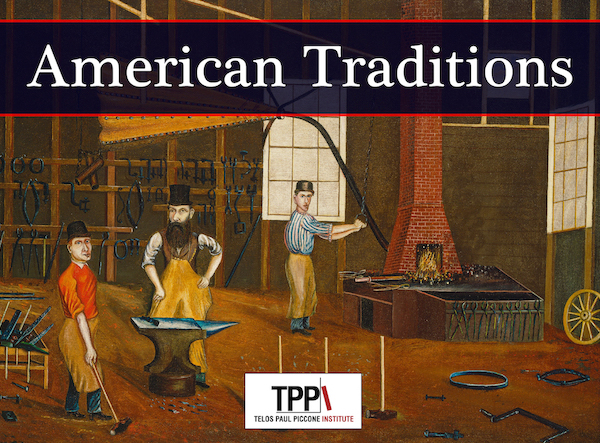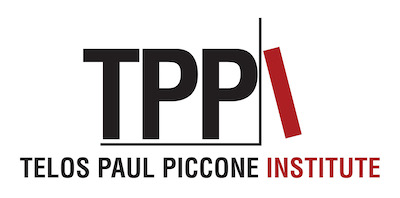I am a professor emeritus of political science at the University of Oregon, and I am an observant, progressive Jew. I appreciate the efforts of conservatives, some of whom have made valuable contributions to the Telos-Paul Piccone Institute’s Israel initiative, to expose antisemitism in my profession and among my students since October 7. I share their concern that anti-Zionism has become one plank in an anti-liberal, anti-capitalist, anti-American project characteristic of some segments of the contemporary left. It’s vital to bear in mind that Jews have thrived when liberal, American values and institutions have been strong.
Does this mean, as Bari Weiss counsels, that I should join Jews in a lockstep turn to the right? I think not. Twenty-five years ago, in Achieving Our Country, Richard Rorty challenged what he called the “cultural left” to suspend high theory, identity politics, and cultural revolution to attend instead to the economic distress of the many Americans left behind by neoliberalism. He challenged an increasingly anti-American left to build a left-wing patriotism. And he pointed to domestic historical resources to realize those aims in the work of Emerson, Whitman, and Dewey. Rorty feared the alternative to such pragmatic liberalism was an authoritarian demagogue, who would reverse the gains of identity politics and usher in an era of American fascism.
It’s not clear whether Rorty detected an authoritarian strain in the cultural left. It is clear, however, that the cultural left in higher education did not heed Rorty’s warning. And as students joined the economically distressed, they found radical critique explanatory. Plagued by debt and an uncertain and unstable job market, they walked through the subprime crisis, police violence, school shootings, climate-induced wildfires, and Covid. In the absence of the sort of pragmatic project Rorty called for, many students in the humanities and social sciences have taken up the cultural left’s anti-capitalist, anti-liberal, and anti-Zionist project.
There is an alternative. Like Dewey and Whitman, Jews once contributed to twentieth-century ameliorative liberalism and left patriotism. Looking back may help us recover intellectual, cultural, and political resources for the present. Consider the work of Louis Brandeis, who devoted his life to reconfiguring classical liberalism for the age of cultural diversity and modern industry.
Drawing on the long tradition of anti-monopolism in America, Brandeis became an architect of twentieth-century antitrust policy. He thought neither markets, nor individual rights, nor democracy could survive vast concentrations of private power. In the pages of Harvard’s Menorah Journal, Brandeis and Horace Kallen reconfigured a rigid nineteenth-century system of racial hierarchy into a society of hyphenated ethnicities, capable of reconciling patriotism with cultural pluralism. Each ethnic group, moreover, had an obligation to contribute its unique assets to a more vital polity. Brandeis built a strong doctrinal foundation for free speech and civil liberties on the Supreme Court. Brandeis also became a leader in the Zionist movement, not only because he believed in Jewish self-determination, but also because he thought a Jewish state had as much to contribute to the world as did Jews to the United States. He labored to organize American Jews in support of Jewish refugees in Palestine, and he actively lobbied British and American policy makers to support the formation of a Jewish state.
To be sure, Brandeis’s projects were partial and imperfect. He and Kallen failed to tackle anti-black racial hierarchy. A rigid system of white supremacy persisted alongside the more fluid categories of ethnicity before the civil rights movement. By opposing the closed shop, Brandeis helped weaken the very labor movement he supported. And for all Zionism’s success, it has a long way to go in fulfilling the democratic promise Brandeis envisioned for it.
Yet Brandeis also shows how Jews helped build a progressive politics devoted to a more generous form of liberalism in America, which also ameliorated antisemitism. By doing so, he and Kallen and others provide Jewish intellectuals, activists, and professors today with resources to overcome antisemitism across the political spectrum by reinvigorating twentieth-century liberalism—not by abandoning it. Why not turn toward them?
Gerald Berk is emeritus professor of Political Science at the University of Oregon. He is the author of Louis D. Brandeis and the Making of Regulated Competition, 1900–1932 (Cambridge University Press, 2009) and Alternative Tracks: The Constitution of American Industrial Order, 1865–1916 (The Johns Hopkins Series in Constitutional Thought, 1994), and co-editor, with Victoria Hattam and Dennis Galvan, of Political Creativity: Reconfiguring Institutional Order and Change (University of Pennsylvania Press, 2013).







Great article, except that in the US at least, these anti-Zionist clowns aren’t really anti-capitalist. Do you see them trying to take over factories and farms? Supporting labour unions? Pushing for a more leftist presidential candidate? Doing ANYTHING AT ALL to change economic policies? If they got every single thing they wanted and Israel poofed off the face of the Earth, we’d still have just as much capitalism.
Nikki said Trump was soft-on-Russia, but will vote for him anyway. Bibi’s outfit won’t join sanctions against Russia and harbors oligarchs.
Near simultaneously, the billionaire Blavatnik, worth $30B, who sold TNK-BP oil to Russia’s state-owned Rosneft in the spring of 2013, secretly urged New York City’s mayor to send police to disperse pro-Palestinian protests at Columbia University.
“The gains of identity politics?” Seriously? What is to be gained by fracturing society into tribal entities, with toxic claims and counterclaims of who’s the victim and who’s the oppressor? Diversity, especially diversity of thought, is only a virtue when it supports a societal framework of core values based on a shared identity. Promoting division by applauding identity politics is a recipe for societal dissolution and its attendant evils.
Three cheers for Horace Kallen. His ‘Cultural Pluralism and the American Ideal’ remains relevant, a useful alternative to the homogenization of the melting pot and the siloization of multiculturalism. Although Kallen focused on European immigrants, Alaine Locke saw his cultural pluralism ideal as a viable strategy, or goal, for African Americans. (Only one or two cheers for Brandeis’s nineteenth-century, pre-corporate-capitalism liberalism.)